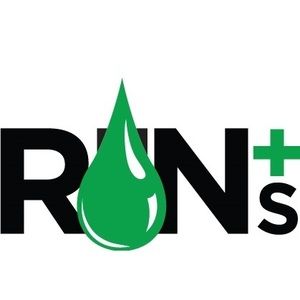Vertex Energy to retire 18.7 million RINs under proposed consent decree

January 6, 2025
BY Erin Voegele
Vertex Energy Inc. could be required to retire over 18.7 million renewable identification number (RIN) credits by March 31, 2025, to satisfy its 2023 and 2024 Renewable Fuel Standard blending obligations under a proposed Consent Decree and Environmental Settlement Agreement lodged by the U.S. government.
Vertex in mid-2021 announced an agreement to acquire a refinery in Mobile, Alabama, and convert a portion of it to renewable diesel production. The renewable diesel unit began operations during the first half of 2023 and in July 2023 had achieved its phase 1 capacity target of 8,000 barrels per day. The company had originally planned a phase 2 expansion project that would have expanded production capacity to 14,000 barrels per day by the first quarter of 2025.
Advertisement
Citing market conditions, the company in May 2024 announced plans to shelve renewable diesel production at the Mobile refinery and return the facility to fossil fuel production. The facility ceased renewable diesel production in August 2024. The following month, Vertex filed for Chapter 11 bankruptcy in the U.S. bankruptcy Court for the Southern District of Texas. As part of that announcement, the company said it would explore the possible sale of its refinery in Mobile.
According to court filings, the facility was scheduled to be sold via bankruptcy auction On Dec. 11. The auction, however, was postponed due to a lack of qualified bidders. The bankruptcy case is ongoing.
Advertisement
As part of the bankruptcy proceedings, the U.S. Department of Justice on Dec. 17 lodged a proposed Consent Decree and Environmental Settlement Agreement with the court. The proposed consent decree requires Vertex to retire more than 18.7 million RINs, currently estimated to cost approximately $15 million, to comply with its 2023 and 2024 renewable volume obligations (RVOs).
The 18.7 million RINs is to include 761,064 unexpired valid D3 cellulosic biofuel RINs; 4.22 million unexpired valid D4 biomass-based diesel RINs; 518,071 unexpired valid D5 advanced biofuel RINs; and 13.3 million unexpired valid D6 renewable fuel RINs. All RINs are to be retired by March 31, 2025.
A public comment period was open for 10 days following the Dec. 17 release of the proposed consent decree. A full copy of the proposed consent decree is available on the DOJ website.
Related Stories
The U.S. Energy Information Administration maintained its forecast for 2025 and 2026 biodiesel, renewable diesel and sustainable aviation fuel (SAF) production in its latest Short-Term Energy Outlook, released July 8.
XCF Global Inc. on July 10 shared its strategic plan to invest close to $1 billion in developing a network of SAF production facilities, expanding its U.S. footprint, and advancing its international growth strategy.
U.S. fuel ethanol capacity fell slightly in April, while biodiesel and renewable diesel capacity held steady, according to data released by the U.S. EIA on June 30. Feedstock consumption was down when compared to the previous month.
XCF Global Inc. on July 8 provided a production update on its flagship New Rise Reno facility, underscoring that the plant has successfully produced SAF, renewable diesel, and renewable naphtha during its initial ramp-up.
The U.S. EPA on July 8 hosted virtual public hearing to gather input on the agency’s recently released proposed rule to set 2026 and 2027 RFS RVOs. Members of the biofuel industry were among those to offer testimony during the event.
Upcoming Events










